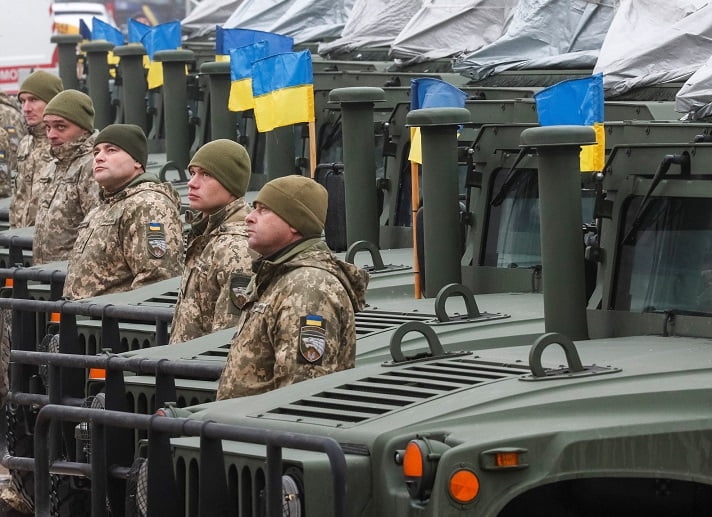
The Ukraine war is gradually spilling over into the Russian Federation. Unwilling to declare a nationwide mobilization and utterly unprepared for a prolonged military confrontation against Western-backed Ukraine, the Kremlin has demonstrated that it cannot protect the Russian territory from the Ukrainian attacks.
By Nikola Mikovic
On April 13, weeks after the Ukrainian Armed Forces started bombing infrastructure facilities in Russia, the Kremlin announced that Russia sees “Ukrainian troops' attempts to sabotage and strike Russian territory.”
“If such cases continue, the Russian armed forces will strike decision-making centers, including Kyiv, “ Russian Defense Ministry said.
To this day, however, not a single administrative building in Kyiv has been bombed. The fact that the United States plans to return its embassy staff to the Ukrainian capital indicates that the Russian army is unlikely to strike any government facilities in Kyiv. More importantly, now that several Western countries have already returned their diplomatic missions to Kyiv, chances for another Russian attempt to capture the city are rather slim.
Russia has dramatically reduced its military presence in Belarus, where it was faced with sabotage. Ukraine, for its part, has demonstrated that it is capable of conducting strikes deep inside the Russian territory. On April 12, a critical Russian railway bridge was damaged in the border region with Ukraine in a potential act of sabotage.
On April 21, a massive fire broke out at a “top-secret” Russian air-space defense research facility in Tver, located northwest of Russia’s capital of Moscow. The authorities of the Tver region confirmed the death of 17 people.
On April 25, Ukrainian Armed Forces destroyed oil facilities in the Russian city of Bryansk, some 70 miles from the Ukrainian border. Moreover, on April 27, Ukrainian forces reportedly hit an ammunition depot in Russia’s Belgorod region, where the Eastern European country’s troops attempted to enter on April 22. Such an attempt suggests that the Ukrainian army will manage to occupy certain territories in Western Russia sooner or later. Meanwhile, the conflict may spill over into Transnistria – Moldova’s breakaway region that has been under Russian control since 1992.
To prevent such a scenario, the Kremlin would have to declare a nationwide mobilization – a move that Russian authorities resolutely refuse to make – and recapture Ukraine’s eastern regions of Chernigiv and Sumy. However, given that Ukraine threatened to bomb the Crimean Bridge – connecting mainland Russia with the peninsula it annexed in 2014 – Moscow is entirely possible to hesitate from taking any “radical actions” against Kyiv.
The Kremlin has already signaled that it takes Ukrainian threats very seriously. After Ukraine’s President Volodymyr Zelensky said that negotiations between Kyiv and Moscow would end if Ukrainian fighters in Mariupol were killed, Russian President Vladimir Putin canceled and canceled Russian plans to storm the Mariupol steel plant.
Quite aware that Ukraine has the potential to do serious harm to the Russian infrastructure, Moscow continues implementing half measures in the Eastern European country, allegedly hoping that its opponent will not additionally humiliate the Russian Federation.
More than two months after Putin launched a “special military operation” in Ukraine, the Russian military has not destroyed a single bridge on the Dniepr River. In addition, Russia’s somewhat limited airstrikes in Western and Central Ukraine have failed to destroy Ukrainian railways.
The former Soviet republic country can freely continue supplying its troops in the Donbas and the south of the country. Indeed, Russian chances of winning the “battle for the Donbas” remain relatively low, especially given that the West will continue supplying Ukraine with weapons.
The United States has openly stressed that Washington wants Russia's military capability weakened so it cannot carry out another invasion. The US Defense Secretary Lloyd Austin also pointed out that his country will make sure Ukraine has everything they need “to win this fight.”
The Russian military and intelligence services, on the other hand, have proved that they are not capable of defending basic domestic security, let alone winning the war in Ukraine. Thus, Russia will lose the war in Ukraine unless the Kremlin radically changes its political and military strategy – which is not very likely to happen.






